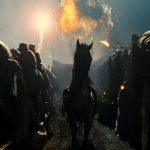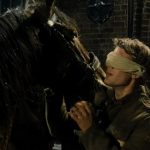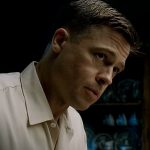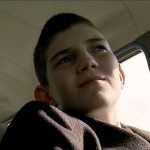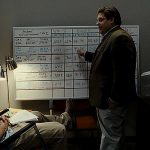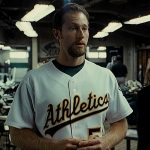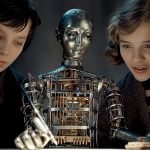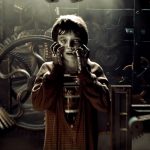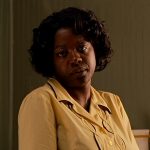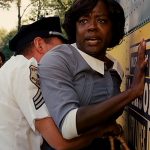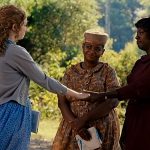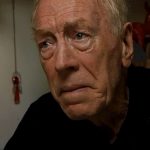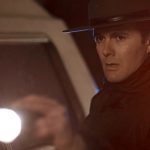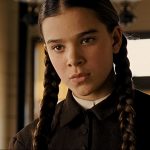War Horse – 2011
There were several reasons I knew War Horse was going to be a good movie. First, I had seen a production of the stage play several years ago, and knew that it had a very good and interesting story. Second, it was directed by Stephen Spielberg. Third, it had some truly masterful cinematography by Janusz Kami?ski.
The movie starred a first-timer to the big screen, Jeremy Irvine, playing the part of Albert Narracott. He is a young man living on a farm in Devon, England. One day, his kindly alcoholic father, Ted, played by Peter Mullan, brings home a magnificent thoroughbred horse, which Albert names Joey. Joey is not bred to pull a plough, which is what the poor family needs. Ted’s wife, Rose, wonderfully played by Emily Watson, knows that if the animal cannot work as a plough-horse, the family will be destitute and lose their farm. Albert raises and trains the young colt to pull a plough.
But then World War I begins and the British army arrives. The Narracott family is saved when Tom sells Joey to Captain James Nicholls, played by Tom Hiddleston. The rest of the film follows not Albert’s adventures, but Joey’s, as he is inducted into the British war cavalry. Captain Nicholls is under the command of Major Jamie Stewart, played by Benedict Cumberbatch. His horse is a large and powerful black stallion named Topthorn. The two horses become friends, and serve together until Nichols dies, and Stewart is captured by German forces.
A young German soldier named Gunther, played by David Kross, and his little brother, Michael, played by Leonard Carow, take the horses and desert their posts. They go on the run and hide out in an empty barn. Unfortunately, they are caught and executed. The horses fall into the care of a young farm girl named Emille, played by Céline Buckens. She lives with her grandfather, played by Niels Arestrup. But the Germans raid the farm, taking all the food, and eventually the horses. The animals are put to excruciating work hauling heavy artillery up steep and muddy hills, under the care of a kindly German soldier, Private Friedrich Henglemann, played by Nicolas Bro.
Topthorn dies of exhaustion, but Joey escapes and runs into a chaotic battlefield. He gets hopelessly tangled in barbed wire. When the battle is over, British and German forces on opposite sides of the battlefield, hear Joey’s cries of pain. Both sides allow a single soldier to approach the animal to free it from its bonds. Joey is returned to British forces. Meanwhile, Albert, who has enlisted in the British Army, is wounded in battle. He has been temporarily blinded by mustard gas, but he is miraculously reunited with Joey. Though he cannot see, the bond he shared with his horse has remained strong. At the end of the war, the two return home to Devon together, and Albert is reunited with his parents.
The film succeeded on so many levels, and the music was certainly one of them. The score by John Williams was, as always, perfectly matched to the story. I honestly don’t know how William’s does it. It doesn’t matter what kind of movie he is scoring, whether it is an introspective drama, or whether it is packed full of exciting action, he always knows how to enhance the story by drawing out the essence of every scene’s emotional core. He is truly a master of his craft.
I also have to praise the performances of the wonderful cast. In particular, Irvine did a fantastic job. He actually looked like a young version of the famous actor, Ethan Hawke. He seemed to have a flare for the dramatic as he bonded with Joey. There was some real emotion there. And I also liked the two soldiers who freed Joey from the barbed wire, Collin and Peter, played by Toby Kebbell and Hinnerk Schönemann.
But really, the real star of the film was Joey. And for his performance, we have to acknowledge the head horse trainer, Bobby Lovgren and his team of trainers. During filming, fourteen horses were used to portray Joey, while four were used to portray Topthorn. Spielberg said it best when he said, “When I’m on an Indy movie, I’m watching Indiana Jones, not the horse he is riding… Suddenly I’m faced with the challenge of making a movie where I not only had to watch the horse, I had to compel the audience to watch it along with me.”
And I must say that the horses were incredible. There is an exciting little scene in which Joey faces off against a German tank. He is in a trench which has come to a dead end. Joey cannot escape and the tank has him cornered. Joey ends up having to jump onto the tank and run over it to get to safety. I am always amazed by how deep and expressive horses can be, a trait that can be seen in their beautiful eyes. The film takes a number of opportunities to focus on their eyes, and the effect was quite moving. I almost felt as if the horses were actors who understood the parts they were playing. I’d say that War Horse is a very worthy addition to the prestigious list of Best Picture nominees, and well-worth watching.






